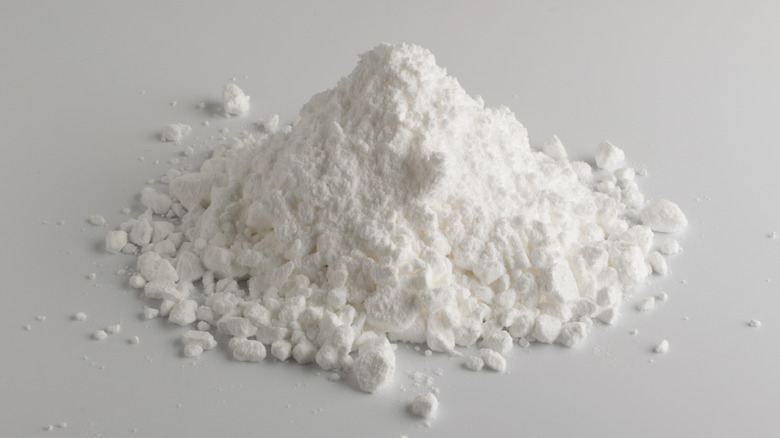What Is D-Mannose And Can It Help With UTIs?
According to the American Urological Association, three in 25 men and about 10 in 25 women will experience urinary tract infection (UTI) symptoms at some point in their lives. UTIs are usually treated with antibiotics. However, alternative treatments like D-mannose are now being considered by experts. Before looking into what D-mannose is and how it works, it's vital to understand the causes and symptoms of UTIs.
A UTI is an infection that occurs in the urinary system, which includes the bladder, kidney, ureters, and urethra (via the Mayo Clinic). According to the clinic, UTIs are caused by bacteria entering the urinary system, often through the urethra. UTIs are more common in women than men due to the urethra's proximity to the anus. Several factors can increase the risk of developing a UTI, including sexual activity, using a urinary catheter, a weakened immune system, diabetes, and being on certain types of birth control, says the Mayo Clinic. Common symptoms of UTIs usually include frequent urination, pain or burning during urination, and abdominal pain, per the Cleveland Clinic.
What is D-mannose and how can it help with UTIs?
D-mannose is a type of sugar that is similar in structure to glucose (a type of sugar found in the body). It is found naturally in small amounts in some fruits, including cranberries, blueberries, apples, and pineapples, per MedicalNewsToday. It has been suggested as a possible treatment for UTIs, although more research is needed.
According to Healthline, D-mannose may help prevent UTIs by attaching to the E. coli bacteria. This ultimately blocks the attachment of the bacteria to the walls of the urinary tract. One 2016 study published in the World Journal of Urology showed promising results, suggesting D-Mannose might be a possible treatment option for recurring UTIs. However, the study concluded that more research is needed to determine the effectiveness of D-mannose in prevention and treatment.
According to WebMD, D-mannose is generally considered safe, although it may cause side effects in some people, such as nausea and diarrhea. It's best to consult with your doctor before taking D-mannose or any other supplement, as it might interact with certain medications and may not be appropriate for everyone.
How to prevent UTIs
If you are prone to UTIs or have had one in the past, it's important to see a doctor. An untreated infection can potentially spread to the kidneys and cause more serious complications. A doctor's visit will help determine the cause and the various preventive measures that may be appropriate for you. As a guide, the Mayo Clinic advises drinking plenty of water on a regular basis, which can help flush bacteria out of the urinary system. The clinic also recommends practicing good hygiene. This includes wiping from front to back after using the toilet and avoiding harsh feminine products.
WebMD further advises emptying the bladder after sexual intercourse. This can help flush out any bacteria that may have entered the urinary tract during intercourse. Lastly, it might be a good idea to avoid using a diaphragm or spermicides — these types of birth control can increase the risk of UTIs, explains WebMD.



